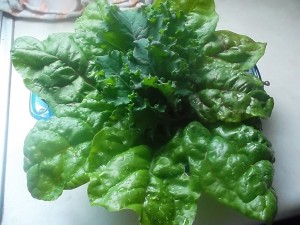There are a variety of arguments about eating organically and sustainably that make it sound like an unqualified good. Organic produce is good for the environment, it may taste better (although this might just be eco-massaging), it may be healthier for you, depending on which pesticides are used in “conventional” food, and so on. The conclusion seems so obvious, then! Eat organic, thou heathen! It’s good for the earth, good for your health, (probably good for your BMI and battle against obesity) and you will therefore be a better, more moral person!
Leaving aside the fact that eating organic as a consciously moral act may may make people more prone to casting moral aspersions against those who don’t (i.e. turn them into jerks), there is a good reason that organic, sustainable food consumption is still a niche activity: it’s just more expensive: labour, costs of production, crop rotation – all of these things add up.
And it’s certainly not as easy as planting a garden, either. The USDA and non-governmental movements, like those in San Diego heavily promote gardening as a food source to people looking for sustainable eats. The problem is (speaking as someone who is gardening right now), gardening takes time. A lot of time. Crops may take anywhere from 50 to 90 days to come to maturity, and that depends on tending, weeding, fertilizing, sowing properly, and harvesting. That’s a long-ass time to wait for a tomato salad. And that assumes you even get any harvest. How many okra plants have I killed? How many beets have I attempted to transfer, before going straight to direct sow? And let’s pour one out for my dear, departed watermelons.
Not to say it can’t be worth it – those lovely greens at the top are spinach and kale from my garden that I got this morning, and turned into a most baller smoothie. But the only reason I can do this, is because I have the time and money to invest in tomato stakes, seeds, and compost.*
By all means, eat organically if you can. But in the sustainable food movement there’s sometimes a little too much judgment or patronizing against those who don’t.
*If you’re one of the lucky few who have the time, energy, and finances to garden, I strongly recommend using the following book. A wealth of information.

